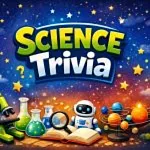Fun and Developmental Activities For an 8-Month-Old Baby
- What to Expect From Eight-Month-Old Infants?
- Development Boosting Activities for Eight-months-old Baby
- FAQs
A baby at 8 months is at a crucial stage of development and requires a wide range of stimuli. There are several activities that you can do with your baby in order to get their development rolling. While these activities are meant to boost the development of your baby, they are also fun and give you and your baby the chance to bond.
What to Expect From Eight-Month-Old Infants?
Being a young parent or a first-time parent can go from moments of pure joy to constant worrying about the health and development of your baby. You will also be on the receiving end of a lot of advice from different places. It is important that you trust your instincts and try to find accurate and verified information. Here are a few developmental milestones that you can look out for in your 8-month-old baby.
- Your baby will start to crawl during this time and will also try to pull himself up by holding on to other furniture.
- Your baby will be able to grasp and manipulate his toys better than before. He will use them to make noise and throw them.
- Your baby will also be able to use his index finger and thumb to pick up things.
- Your baby will also increase his communication range and will understand more words.
- Your little one will try to copy sounds and try them to get your attention.
During this phase of their development, the activities for 8-month-old baby boys and activities for 8-month-old baby girls usually remain the same. The important aspect is to develop their physical, cognitive and analytical skills without creating a gender divide.
Development Boosting Activities for Eight-months-old Baby
It is very important as a parent to recognize that your baby at this time is growing at a rapid pace; what he is exposed to and the type of 8-month-old baby development activities you plan for him will decide how he grows.
1. Splash
When it comes to fun baby activities in the 8th month of infancy, this is an activity that is considered one of the best, it can do a lot for your child on a physical and psychological level. Simply find a baby pool that is inflatable or a bathtub, sit with your baby in it and let him splash around.
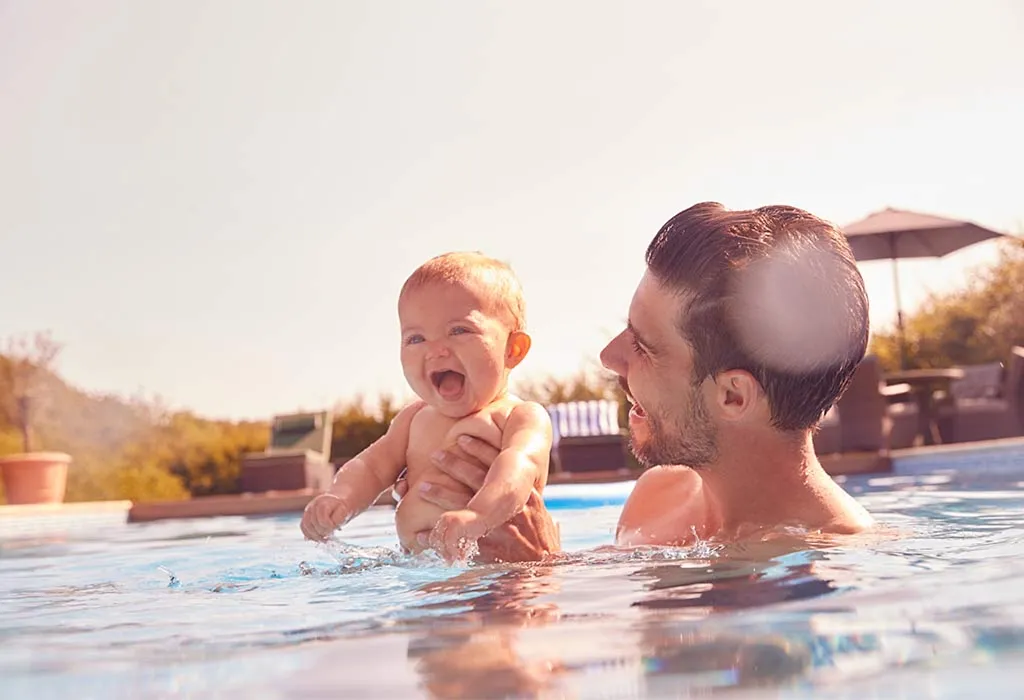
How to Help Your Child Perform
- First, fill the bathtub with lukewarm to warm water.
- Sit in the bathtub.
- Have your partner bring your baby to the tub.
- Test out their tolerance to the temperature by tapping their toes in the water.
- If comfortable, let your partner hand the baby to you.
- Hold them under the arm or at the waist, and keep their shoulders above the water.
- Encourage them to splash around in the water.
- Have your partner gently move their arms initially or splash droplets of water on them.
- Talk to them slowly and use words like water, game, fun, mom and dad.
Skill Developed
- This activity develops the following skills
- Physical motor skills
- Hand-eye coordination
- Empathy
- Bonding skills with others
- Linguistic ability
2. Sticky Ball
This is a fun and adventurous ball game that can be fun for your child while they develop essential skills. This is also a great way to build a bond with them and encourage their intuitive natures. All you need in this game is a medium-sized plastic ball and sticky tape.
How to Help Your Child Perform
- Take the plastic ball, and wrap it with sticky tape in a way where the sticky parts are on the outside.
- Hand your baby the ball.
- Sit with them, make sure they don’t put it in their mouths.
- Watch them play and analyze the ball.
- Talk to them in a slow and even voice.
Skills Developed
- Deductive Skills
- Analytical Skills
- Hand-Eye Coordination
- Motor Skills
- Linguistic Skills
3. Discovery
Your baby is now old enough to recognize the difference between hiding something and taking something away. They are curious and have begun deducting everything around them. This activity will nurture that by making them find a toy you’ve hidden away. All you need is a bedsheet or a washcloth and different toys.
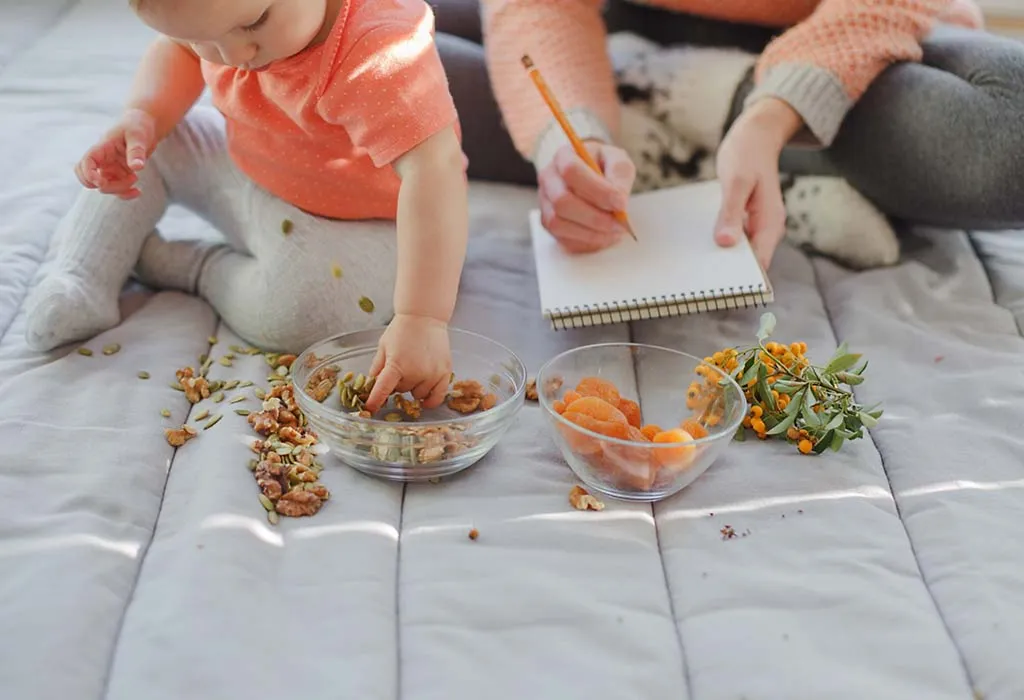
How to Help Your Child Perform
- Put different toys on the ground.
- Put different colour washcloths or bedsheets on them.
- Say a word like “Pig”.
- Let your child discover the toy.
- When they get it right, praise them by hugging them or rewarding them in a noticeable manner.
Skill Developed
- Word association
- Linguistic development
- Word recognition
- Deductive analysis
- Analytical thinking
4. Oatmeal Hidden Gem
This is a slightly messy but great game to help your child discover a sense of adventure. It is easy to set up, simply make some oatmeal and ensure it cools down. Then place toys in it and then put your child in it.
How to Help Your Child Perform
- Encourage your child to dig around the oatmeal.
- When they pull out a toy, tell them about the toy, use phrases like “green round ball”.
Skill Developed
- Linguistic recognition
- Physical motor skills
- Hand-eye coordination
- Muscle development
5. The Crawl
Your baby is not yet ready to crawl, they are slightly too young, but they’re almost there. This game is perfect to help them slowly get there.
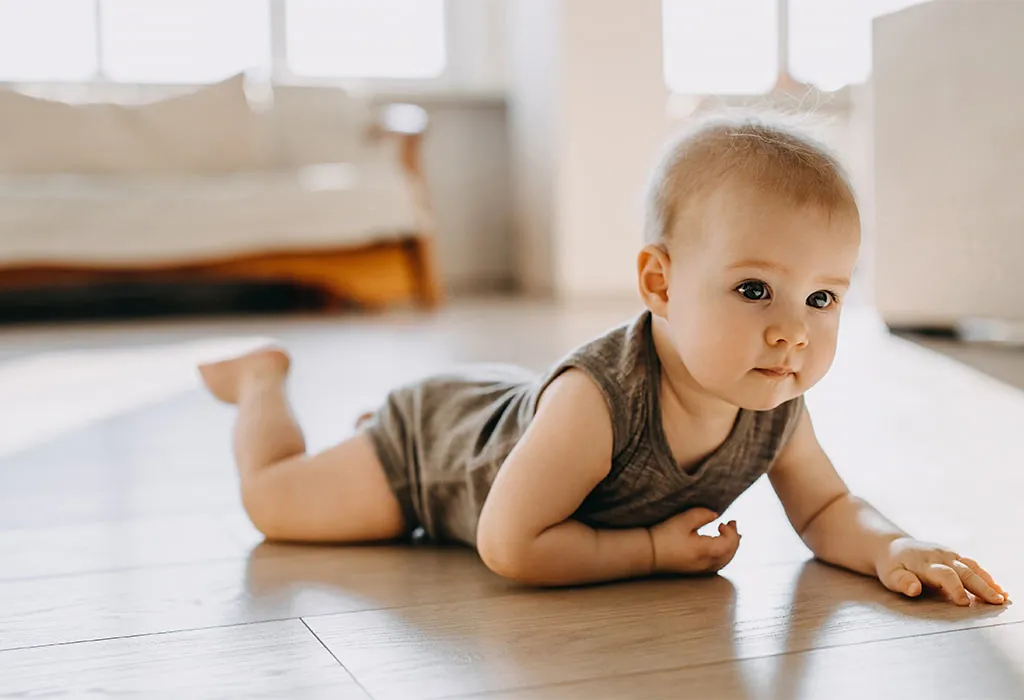
How to Help Your Child Perform
- Place your kids on all fours.
- Put a toy just out of their reach.
- As they make the effort, support them, especially at the hip.
- Hand them the toy when they begin to struggle.
Skill Developed
- Mobility
- Muscle development
6. Read
At this age, reading to your child may become the most important activity you can engage them in. This has possibly the greatest number of benefits to your child’s development.
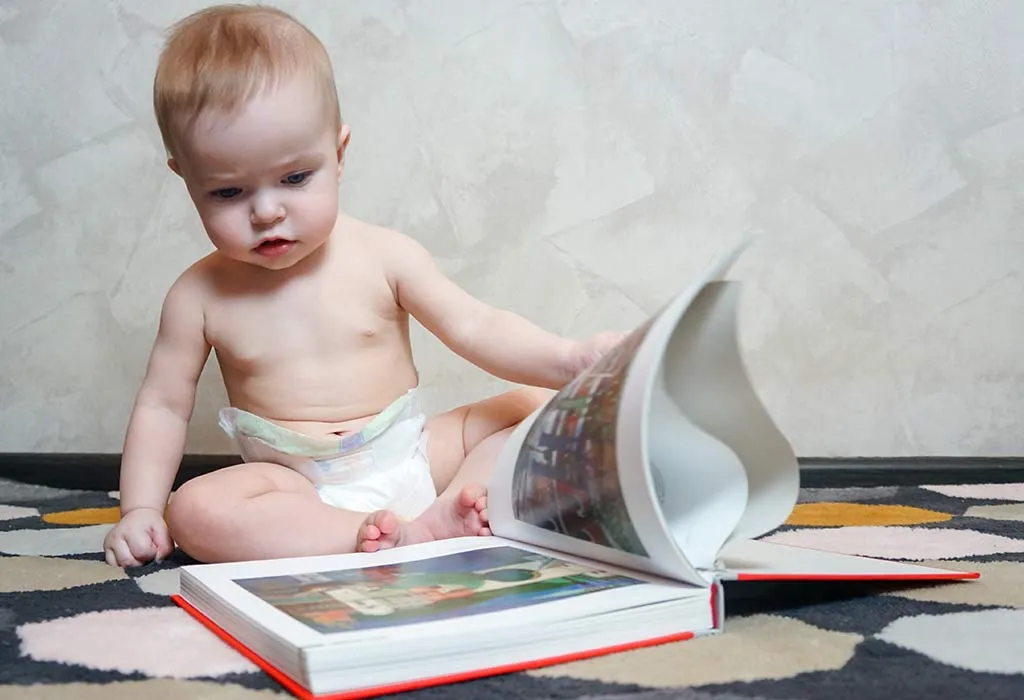
How to Help Your Child Perform
- Use illustration storybooks.
- Read slowly to your child.
- Stress on simple words that are descriptive, like “big” or “green”.
Skill Developed
- Cognitive learning
- Linguistic ability
- Word association
- Inquisitive learning
- Identification
7. Colour
It is a great activity for your little one to develop an artistic side. For this activity, all you need is some infant-friendly finger paints and some white sheets of paper.
How to Help Your Child Perform
- Spread paper all over the floor.
- Dip your little one’s finger into one colour.
- Trace their finger across the paper.
- Place different colours on the paper.
- Guide their palms onto the colour.
- Let them freely spread the colour.
- Repeat the colour names slowly as they interact with it.
Skill Developed
- Artistic Nature
- Colour Identification
- Word Association
- Expressive Nature
- Cognitive Learning
- Linguistic Learning
- Aesthetic Understanding
- Inquisitive Nature
8. The Reach
It is a game you can play with your child to help them develop in multiple physical ways and build a bond with them. This activity is simple to execute and a lot of fun.
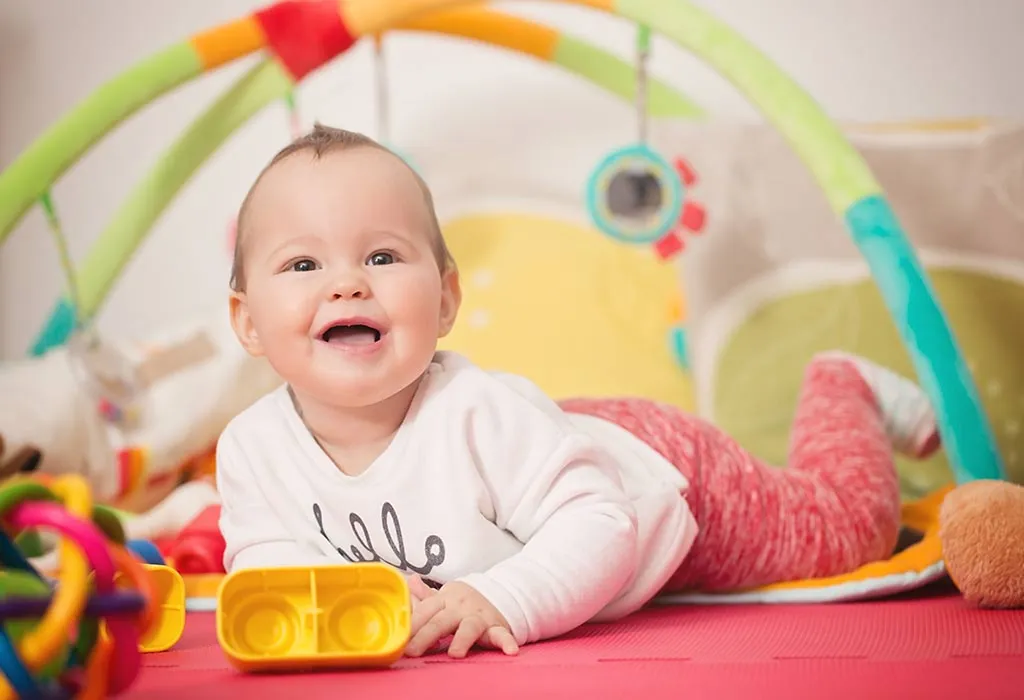
How to Help Your Child Perform
- Sit with your child in an open space.
- Pick a toy and hold it tight, just out of their reach.
- Move it around them to make them follow and reach for the toy.
- Gently repeat descriptive features of the toy while doing this.
Skill Developed
- Visual senses
- Tactile senses
- Grasping skills
- Mobility
- Hand-Eye Coordination
9. Keyboard
Music is usually a great way to get children to develop numerous essential skills. This also has a huge impact on how they develop skills that are psychological in nature, like empathy and sympathy.
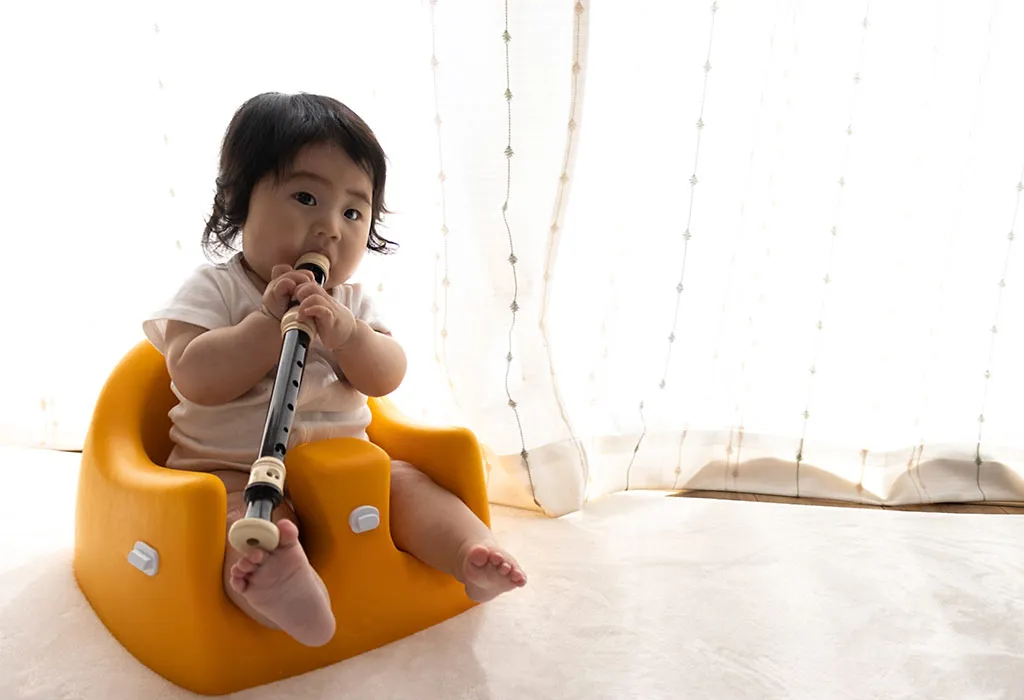
How to Help Your Child Perform
- Place a baby keyboard with sounds in front of your child.
- Guide their fingers to keys.
- Describe the sound the key makes, like a Siren, Horn etc..
- Switch to music mode.
- Let your child experiment.
Skill Developed
- Acoustic recognition
- Word association
- Cognitive development
- Musical expression
- Empathy
- Sympathy
- Sound association
- Listening skills
- Linguistic skills
10. Name Game
This is an absolutely essential part of your 8-month-old baby’s development and can have long-lasting benefits. It’s extremely easy to perform and makes use of whatever is around you.
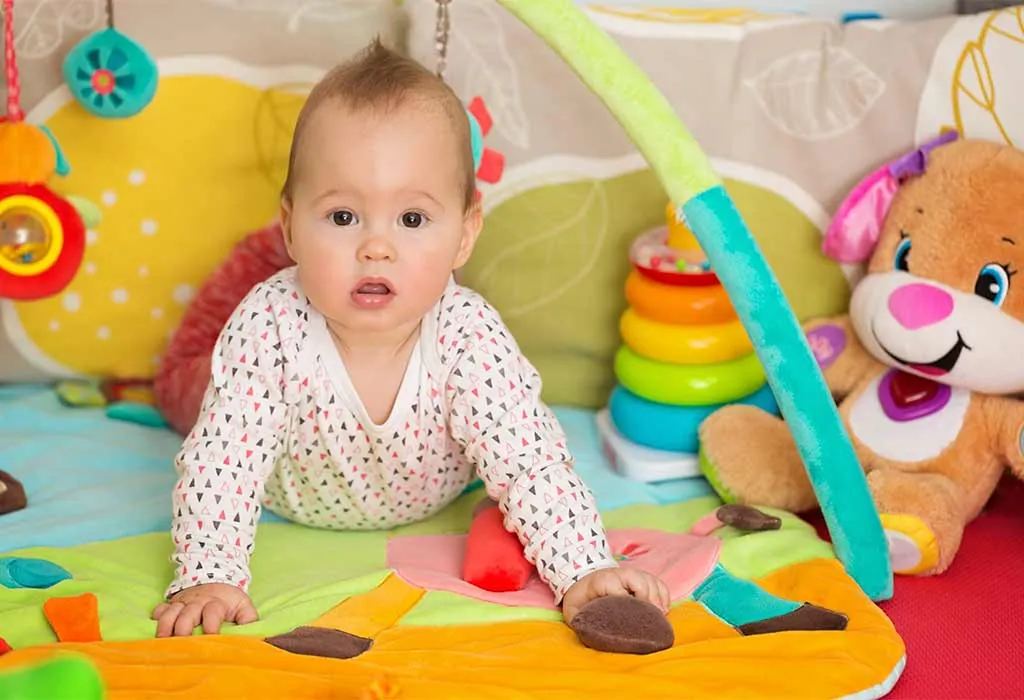
How to Help Your Child Perform
- Sit with your child and place objects in front of them.
- Encourage them to pick an object up.
- Once they do, repeat the name of the object slowly (ball, carrot).
- Repeat the name once again but with a description at the start (red ball, big carrot).
Skill Developed
- Name recognition
- Cognitive learning
- Visual recognition
- Grasping skills
- Word association
- Aesthetic learning
FAQs
1. What you should expect from your 8-month-old?
Your baby will be more active and curious at eight months. Expect them to try sitting without support, begin showing signs of crawling, babble more coherently, show recognition towards familiar people and objects, and express emotions like joy, fear, and anger. Your baby’s activity at 8 months will centre around exploring toys, responding to their name, and developing a solid bond with primary caregivers.
2. How can you develop a sense of object permanence in an 8-month-old?
Developing a sense of object permanence is pivotal at this age. Start with games like Peek-a-Boo. When playing, cover a toy with a cloth and reveal it after a moment, demonstrating that objects still exist even when not in sight. Consistent exposure to such indoor activities helps solidify this concept in their young minds.
While the activities mentioned above are great to help your child develop and grow at the age of 8 months, it is also highly recommended that you seek the assistance of a medical professional in creating activities that are specified for your child’s requirements. It is essential to note that you actively refrain from comparative developmental markers for other children. Each child grows at their own unique pace, some aspects of their growth are accelerated, and some will come with time and patience. Comparing your child to others will only lead to unnecessary anxiety and stress for you and your child. At this age, your child is able to recognize emotion in you and your partner.
While partaking in these activities with your child, remain attentive. It is crucial that they don’t ingest any props or perform an activity in any harmful manner. If you are afraid of your child’s development, see a specialist and avoid speculation. Speculative diagnosis should be avoided, as should self-diagnosis of your child’s development.
References/Resources:
1. Raising Children Network ; 8-9 months: Baby Development
2. Healthychildren ; 8 to 12 Months
3. Pregnancybirthbaby ; 8 months old, Pregnancy, Birth and Baby
4. CHOC ; 7-9 Month Old Baby Development & Milestones
5. Healthychildren ; Cognitive Development: 8 to 12 Months
6. Nemours KidsHealth; Your Baby’s Growth: 8 Months
Also Read:
8 Months Old Baby Milestones
8 Months Old Baby Food Chart & Diet Plan
8 Month Old Feeding Schedule, Food Ideas, Recipes & Tips
Was This Article Helpful?
Parenting is a huge responsibility, for you as a caregiver, but also for us as a parenting content platform. We understand that and take our responsibility of creating credible content seriously. FirstCry Parenting articles are written and published only after extensive research using factually sound references to deliver quality content that is accurate, validated by experts, and completely reliable. To understand how we go about creating content that is credible, read our editorial policy here.






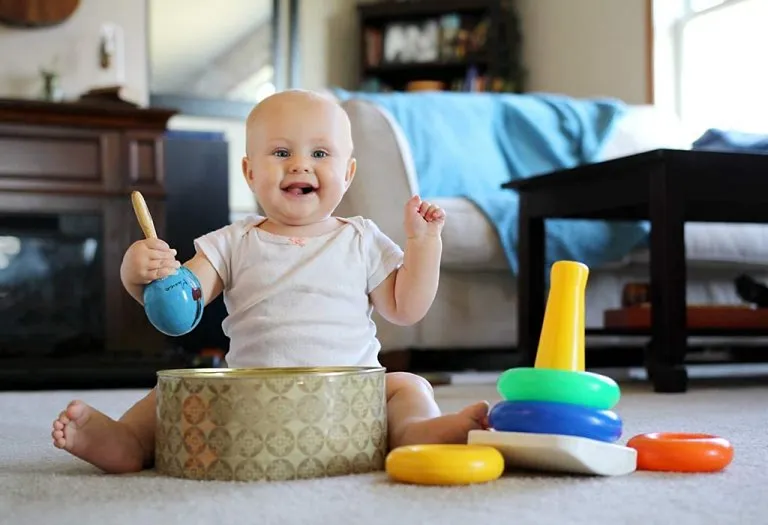
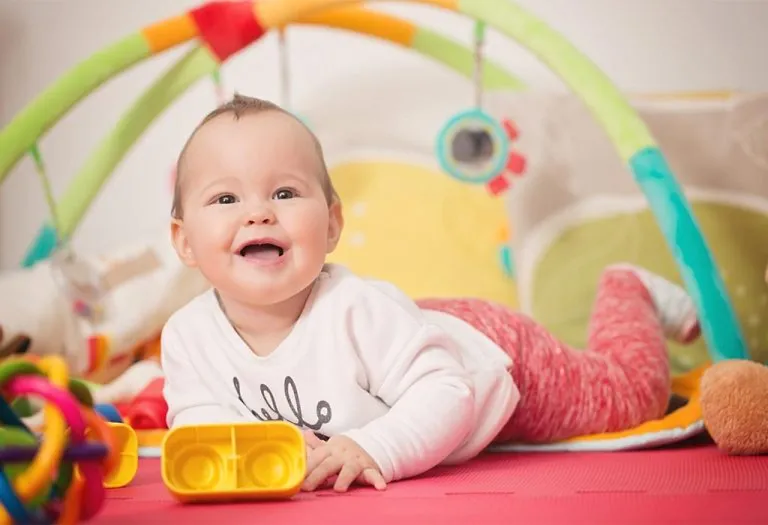
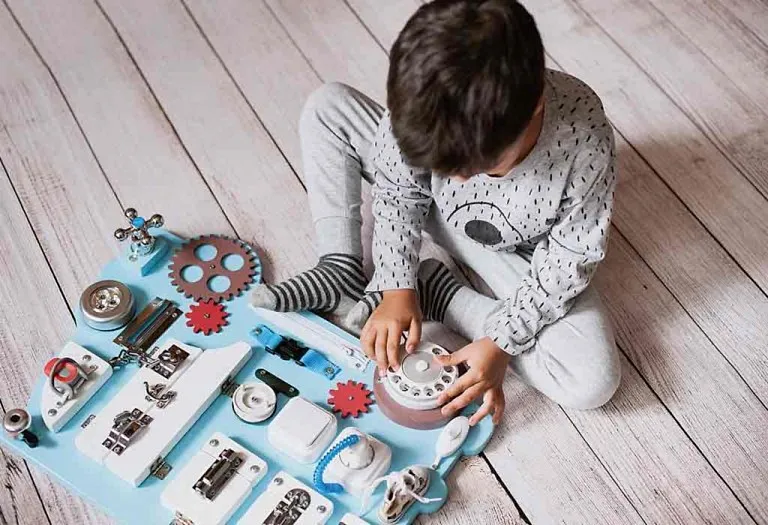

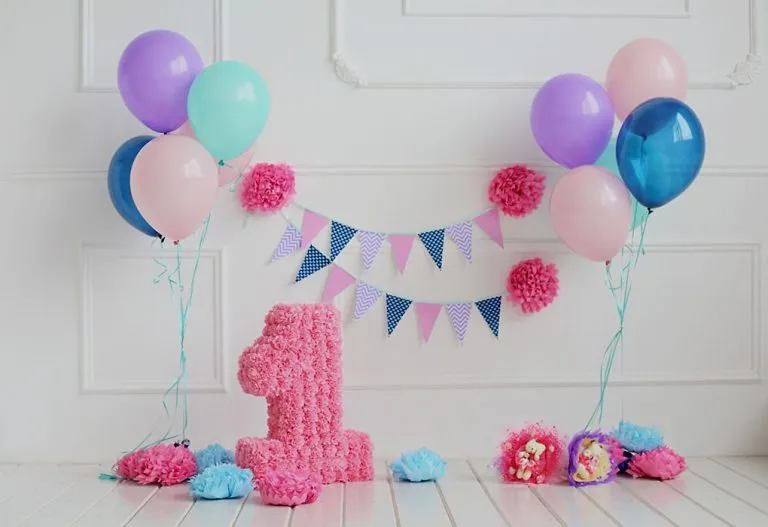

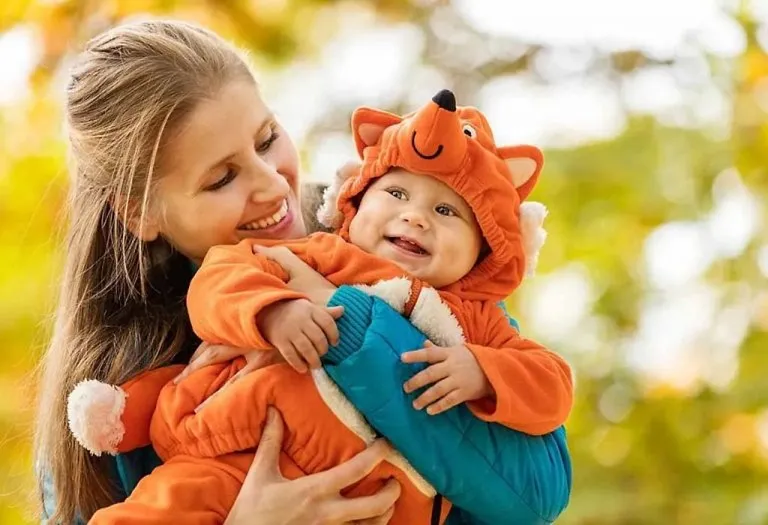

.svg)

















